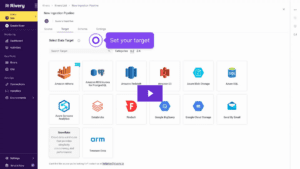“You must be shapeless, formless, like water. When you pour water in a cup, it becomes the cup. When you pour water in a bottle, it becomes the bottle. When you pour water in a teapot, it becomes the teapot. Water can drip and it can crash. Become like water my friend.” – Bruce Lee
Everyone understands the importance of analytics. Every business understands that it’s impossible to succeed in the long run without measuring performance along the way.
However, it is becoming increasingly difficult to manage data and insights. Mostly because there are thousands of data sources, making it hard to synchronize them and create a unified source of insights to facilitate and centralize all insights.
After all, data should help and simplify making business decisions, instead of making them more complex.
These are 6 keys to survive (and succeed!) with your data:
1. Focus on business, not buzzwords
The data revolution exploded with many solutions and shiny names attached to them. Hadoop, Kafka, Storm, Spark ,Redshift, BigQuery, Athena, Hive, Impala, Parquet, Avro, Elasticsearch, Druid, Streaming, Machine Learning… it’s easier than ever to get lost or drowned while trying to stay at the cutting edge of innovation.
While it’s important to stay up to date when it comes to technology, remember that data and tech are here to serve your business – not the other way round!
2. Fully managed = full power
The data and tech overload we’re experiencing often results in implementing systems that are not fully managed, resulting in huge C-level headaches that can put an entire business operation on hold. CEO briefings should focus on business strategy growth and revenues – not updates on why Kafka keeps falling.
Just like with an office building, you’d expect that the water pipes and electricity will be fully managed and work seamlessly… so should your data! Data systems can be managed to ensure all the pipes are working efficiently.
So companies can focus on scaling business rather than keeping their infrastructure afloat.
3. Stay ahead of your product cycle
BI system can’t be developed at the pace of a company’s product. BI and insight tools must evolve and change faster and more frequently since they will pave the way for the company’s future.
It’s important for companies to acknowledge and realize that their data system can’t have a development cycle that runs in parallel to the company’s product.
You must be flexible and move fast – speed is key to supply your business with the strategic insights needed to take the best steps forward.
4. No one will drink your murky water twice
Data must always be up to date and as accurate as possible. Establishing a new data system changes the culture and many business processes – employees will rely on your chosen data system/s to deliver their daily tasks.
If the insights are not reliable and harm their performance, it will be a hard battle to fight. It could damage your culture, motivation and re-building trust in data will be a long and painful road.
5. Simplicity is hard
It might be a cliche but it’s true. No matter how your data is structured, it will be a complex system with million dot connections and relations. You must strive to find the shortest and cleanest way to organize your data.
If you can’t describe articulate your data system simply and succinctly it’s probably too complicated to manage. But this will take some serious thinking, so invest the time upfront to optimize how your data is aggregated, stored and managed to ensure a future of smooth sailing.
6. Let everyone take a dip in your data lake
Feedback is key to maximize a company’s BI system. In order to improve and optimize your data, it is essential for as many people within the organization to experience it and share their feedback, input, or concerns.
You’ll be amazed at the ideas that flourish from different users, teams, and roles. As data systems get more user-friendly and more consolidated – encourage active participation and feedback. No data system is perfect nor there is a silver-bullet way to set up the perfect metrics, dashboards, or parameters.
Make sure your data is at the service of your entire team, not just the ‘chosen few’. This will propel your business forward by bringing diverse perspectives and creating a healthy data-driven culture.
At Rivery, we’re hard at work creating tools that will help people manage all these challenges, bringing a new tools to help businesses make the most of all their data – with simplicity and speed at the heart of it.
Minimize the firefighting. Maximize ROI on pipelines.





